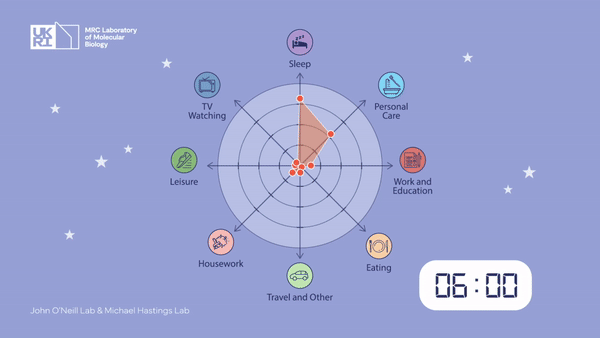Circadian biology
Circadian (approximately daily) rhythms are cell-autonomous oscillations that permeate every level of biology, and thereby impact upon many aspects of health and disease. In humans for example, our sleep/wake cycle has a clear circadian rhythm, as do numerous aspects of physiology and metabolism. Circadian disruption, as occurs during shift work, has been strongly linked with conditions such metabolic syndrome, heart disease and various cancers. The molecular basis of cellular timekeeping remains an elusive yet critical objective for biomedical research.

Our research programme follows two strands. First, we seek to understand the key inputs and outputs that connect daily cellular timekeeping with human physiology. Second, we want to determine the underlying mechanism of cell-autonomous timekeeping, with the aim of identifying the post-translational “ancestral” clock that we hypothesise underpins the diverse array of transcription-based circadian rhythms found in varied organisms.
To achieve these goals we employ a wide range of molecular biology, proteomic, metabolomic and biochemical techniques, supported by real-time fluorescent and bioluminescent reporters.

